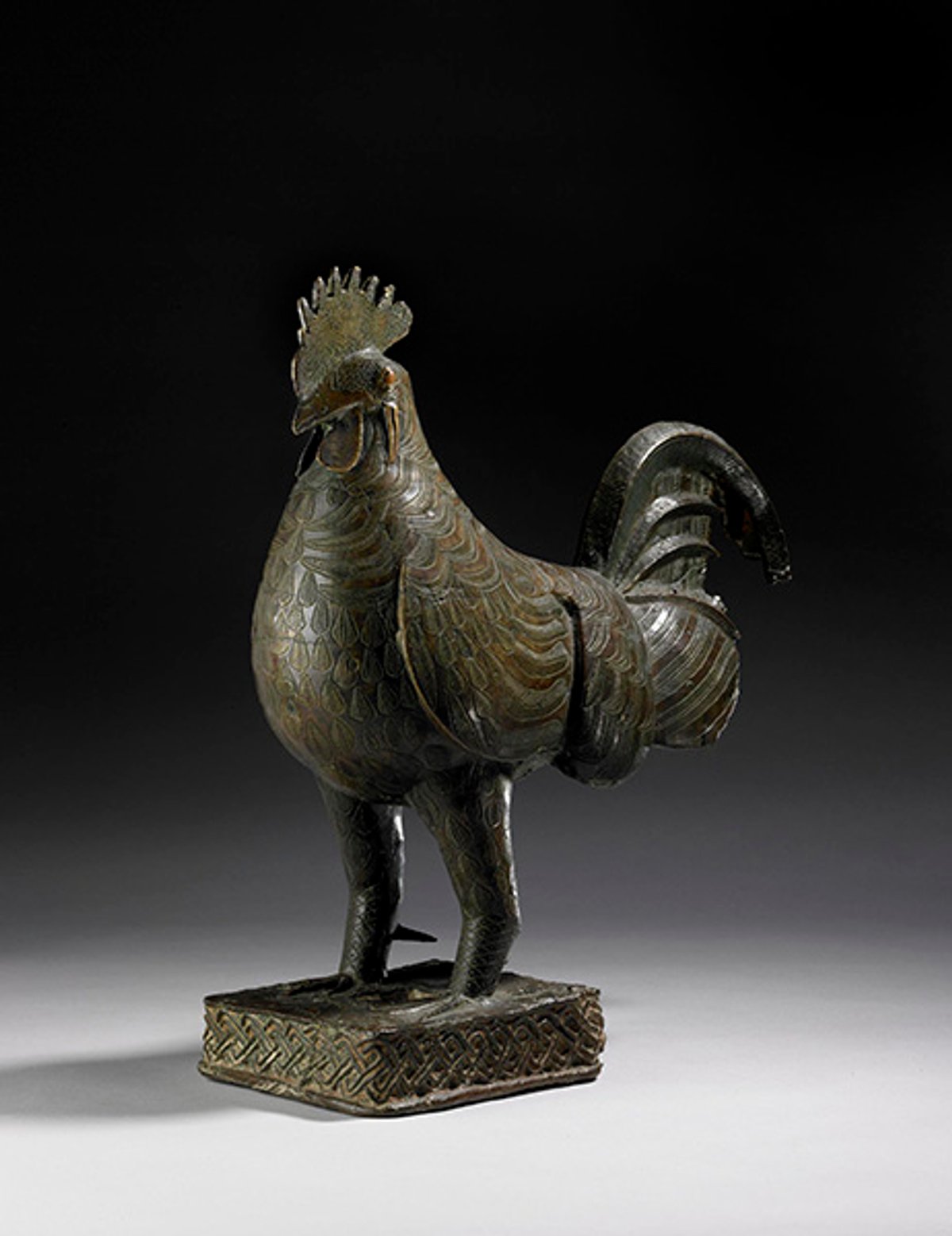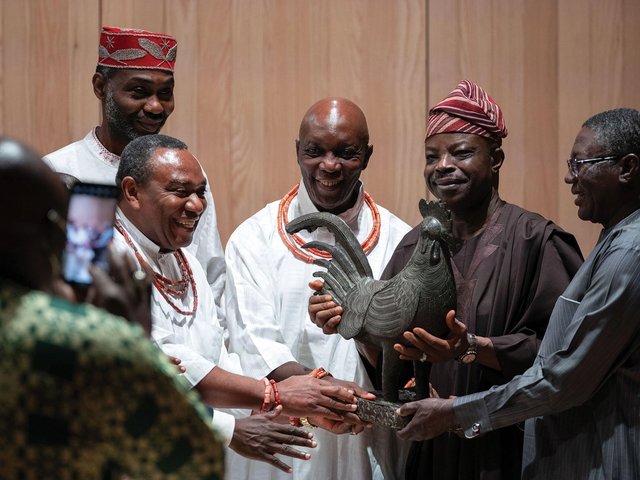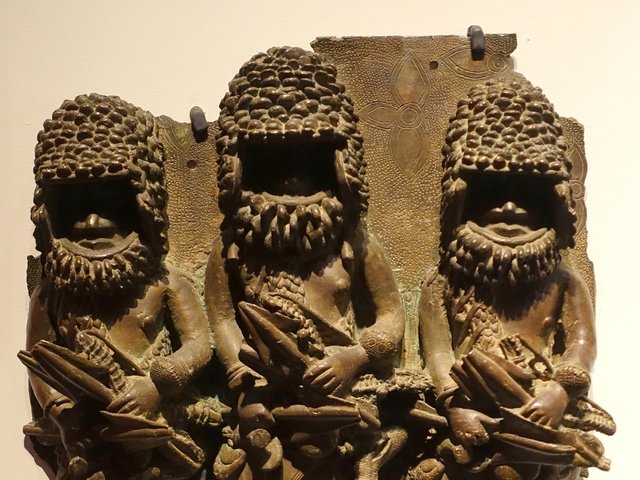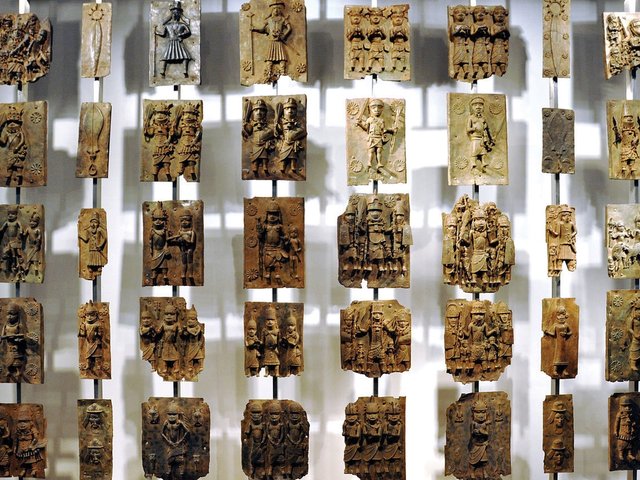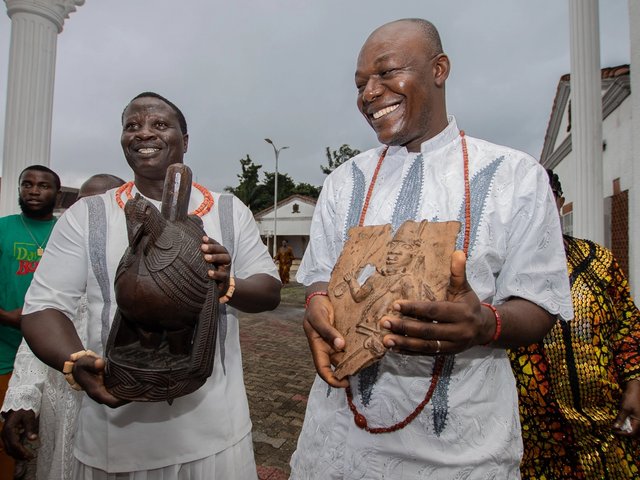The Nigerian government has made a new claim for the Benin Bronzes housed at the British Museum in London in the wake of the theft controversy engulfing the institution.
"It's shocking to hear that the countries and museums that have been telling us that the Benin Bronzes would not be secure in Nigeria, have thefts happening there," Abba Isa Tijani, the director of Nigeria's National Commission for Museums and Monuments, told Sky News.
He added: "It is irrespective whether they are safe there. That is not an issue. The issue is that these are stolen artefacts, and they should be returned to Nigeria to the communities that they belong to."
The British Museum has one of the largest collections of Benin bronzes in the world, with more than 900 pieces, but it is prohibited from removing items from its collection under the British Museum Act of 1963.
Tijani said the country's newly appointed minister of Arts, Culture and Creative Economy, Hannatu Musawa, will write to the British Museum and the British government within weeks to demand the immediate repatriation of the Benin Bronzes.
Peter Higgs, a senior curator of Greek and Roman art who was employed at the British Museum for 30 years, was identified in UK press reports as the person alleged to be responsible for stealing priceless artefacts from the museum’s collection. Higgs's family has denied the allegations against him.
Recent reports state that the number of items taken is thought to total more than 1,500; earlier this week, the Greek culture minister, Lena Mendoni, said that the controversy over stolen items strengthened Greece’s demands for the Parthenon Marbles.
Meanwhile the so-called Benin Bronzes have become a touchstone to test European museums’ readiness to restitute heritage looted from Africa in the colonial era. After the violent 1897 plunder and devastation of the Royal Palace of Benin by British troops, at least 3,000 artefacts were dispersed internationally. The Benin Kingdom was thereafter incorporated into the British protectorate of Nigeria, which became the independent Federal Republic of Nigeria in 1960.
Earlier this year the Benin Bronzes restitution saga took a new turn after the Nigerian government officially recognised the Oba of Benin (Oba Ewuare II) as the owner and custodian of the artefacts looted in the late 19th century. The announcement came in the form of a Presidential Declaration, released through the official gazette.
In May, Phillip Ihenacho, the director of the Edo Museum of West African Art in Nigeria, gave a different perspective on restitution. “As and when restituted objects may be entrusted to us, they will be welcomed as part of a much broader centre, where they will be seen side by side with contemporary and Modern works of art to inspire the next generation of great West African creatives,” he said.


